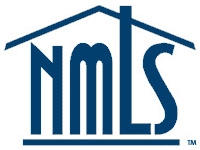Understanding Homeownership Benefits
Homeownership offers a wide range of benefits, both financial and non-financial. Here’s a list of some of the most commonly cited Homeownership Benefits:
Equity Building: Over time, homeowners typically build equity in their homes, which can be a significant wealth-building tool.
Stable Monthly Payments: With a fixed-rate mortgage, homeowners can have consistent monthly payments, unlike renters who might face periodic rent increases.
Tax Benefits: Homeowners may benefit from tax deductions related to mortgage interest, property taxes, and sometimes even mortgage insurance.
Appreciation Potential: Real estate often appreciates over the long term, potentially offering homeowners a return on their investment when they sell.
Freedom to Customize: Homeowners can renovate, decorate, and change their property without landlord approval.
Sense of Stability: Owning a home often provides a sense of rootedness and permanence in a community.
Forced Savings: Monthly mortgage payments can act as a form of forced savings, especially as a portion goes towards the principal balance, building equity.
No Landlord Issues: Homeowners don’t have to deal with landlord restrictions or the potential of eviction (as long as they meet their mortgage obligations).
Pride of Ownership: There’s a particular pride and emotional satisfaction in owning one’s home and having a space that truly belongs to you.
Long-term Financial Gains: As you pay off the mortgage, your financial obligation decreases, but the home’s value might increase, offering long-term financial benefits and creating the ability for home equity loans.
Private Space: Homeownership often offers more privacy than renting, especially if you are renting in a multi-unit building.
Legacy: Home ownership can be a tangible asset to future generations.While homeownership offers numerous advantages, weighing them against the responsibilities and costs associated with buying and maintaining a home to make an informed decision is essential.
Assessing Your Financial ReadinessAffordability & Costs:
Can you afford a 3.5% to 20% down payment?
Have you accounted for closing costs, property taxes, homeowner’s insurance, and potential homeowner’s association (HOA) fees?
After considering all monthly expenses, can you comfortably afford the mortgage payment?
Financial Health:
What is your credit score? Will it get you a favorable mortgage rate?
Do you have an emergency fund that covers 3-6 months of expenses?
Are you carrying a significant amount of high-interest debt?
Loan & Interest: Making Sense Of Mortgages
Loan & Interest:
- What is the interest rate on the mortgage you’re considering? This adds to costs if they are high.
- How long is the term of the loan? Can you afford a 15-year mortgage payment?
- Are you considering a fixed-rate or adjustable-rate mortgage?
Renting Vs. Buying: A Comparative Analysis
Rent vs. Buy Analysis:
- How do the costs of buying compare to renting in your desired area?
- What are the projected appreciation rates for property in the area?
The Importance Of Market Timing
Market Conditions:
- Is it currently a buyer’s or a seller’s market in my area? Buyer’s markets are costly when you have to go against multiple bidders.
- Are home prices in the area rising or falling? Always seek to buy in a rising real estate area to optimize benefits.
- How do current mortgage rates compare to historical averages?
Lifestyle Considerations And Homeownership
Duration & Longevity:
- How long do you plan to live in this house? That is an important consideration when choosing a mortgage duration period.
- Does buying make sense if you plan to move within the next few years? Better to rent in that situation due to the high closing costs and commission expenses.
Lifestyle & Personal Considerations:
- Does the house meet your long-term life goals (family, work, etc.)?
- Are you ready for the responsibilities of homeownership, such as maintenance and repairs?
Potential Investment And Resale Value
Future Resale & Investment Potential:
- Is the property in a location likely to appreciate? Look at growth, quality schools, low crime, and businesses coming into the area.
- Are there any future developments or plans that might impact property values in the area?
Job Stability And Its Impact On Home Buying
Job Stability:
- Is your job stable? Is there a risk of relocation or unemployment?
Ongoing Costs Of Owning A Home
Owning a home isn’t just about the mortgage payment. Consider utility bills, potential HOA fees, maintenance, and repairs. Understanding these costs and ensuring you can handle them on top of your mortgage is essential.
The Emotional Aspects Of Home Buying
Beyond finances, buying a home is a significant emotional decision. The idea of putting down roots, the pride of ownership, and the potential for family memories all factor in. Consider how these emotional aspects align with your current life stage and plans.
When Waiting Might Be Wise
Sometimes, it might be better to wait. Whether due to market conditions, interest rates, personal financial situations, or other life events, don’t rush into homeownership if it doesn’t feel right.
Are You Ready To Take The Plunge?
Before making a decision, reflect on all the above considerations. Address each question sincerely; if most have affirmative answers, you’re likely on the right track. Remember, homeownership is a significant commitment, but by addressing the questions in this article, you’ll be better equipped to make an informed decision about purchasing a home.
Call us to pre qualify free 904-613-7700
See Full article here https://www.newtraderu.com/2023/08/11/should-you-buy-a-house/














